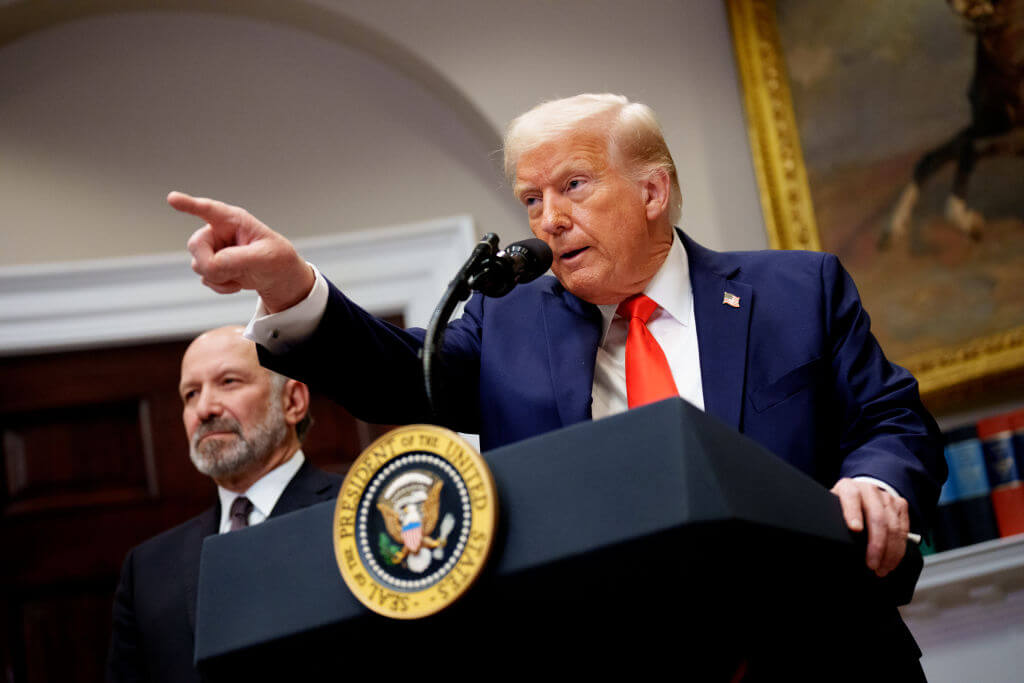Diaspora Groups and Israel Spar at Summit
In a rare public spat between Israel and its supporters in the United States, Prime Minister Ehud Olmert bluntly denounced efforts by a coalition of American Jewish groups aimed at maintaining a united Jerusalem.
Following statements by several hawkish and Orthodox groups that appeared to question Israel’s right to broach discussion of dividing Jerusalem with the Palestinians, Olmert told reporters on the eve of this week’s peace conference in Annapolis, Md., that Israel has exclusive purview over negotiating the future of its capital.
“Does any Jewish organization have a right to confer upon Israel what it negotiates or not?” Olmert said. “This question was decided a long time ago. The government of Israel has a sovereign right to negotiate anything on behalf of Israel.”
Earlier, the Orthodox Union had issued a statement criticizing Olmert for failing to defend Israel’s full sovereignty over Jerusalem.
The O.U. was quick to deny that it was calling into question the Israeli government’s right to determine its own policy. The O.U. held its ground, however, in insisting that Israel not put Jerusalem on the negotiating table.
“In vigorously advocating for the unity of Jerusalem in the weeks leading up to the Annapolis conference, the Orthodox Union has not sought to ‘confer upon’ or dictate to the Israeli government what it has the legal right to negotiate about with Palestinian or other Arab leaders,” the O.U. responded in a statement released Monday. “We have, however, sought to express our heartfelt and strong view that all Jews around the globe have a stake in the Holy City of Jerusalem, and that to cede portions of the city which has been the spiritual and political capital of the Jewish people for millennia is a step the government of Israel ought not take.”
Beyond the tensions between Olmert and the Orthodox community over the issue of Jerusalem, the unusually public dispute has brought into stark relief the lukewarm backing that Olmert’s peace efforts have gotten from much of the organized American Jewish community.
“Olmert probably has to be very disappointed that U.S. Jewish groups have not been very supportive of his peace efforts,” said Daniel Kurtzer, a former American ambassador to Israel. “Those groups are quick to rally when Israel faces trouble, but less so when it faces a peace process. Olmert, as other Israeli prime ministers before him, is wondering where the support is when he needs it most.”
Most major Jewish groups issued statements expressing hope in the restarting of peace talks. The Conference of Presidents of Major American Jewish Organizations, the umbrella organization widely viewed as the American Jewish community’s consensus voice on Middle East affairs, said the meeting “can be a significant step toward launching meaningful, bilateral negotiations.”
On the same day that it issued the statement, however, the Presidents Conference hosted Jerusalem’s mayor, Uri Lupolianski, an ardent opponent of dividing the city. A week before his appearance at the Presidents Conference, Lupolianski announced a new $50 million plan to improve infrastructure and living conditions in east Jerusalem in an effort to keep the city united, and he recently took part in a conference held by Likud leader Benjamin Netanyahu to mark the forming of the Coalition for a United Jerusalem.
“I am troubled by the invitation, because there is the perception that he came to undermine Annapolis and the conference should not have given him such a platform,” said Seymour Reich, a former chairman of the Presidents Conference. “It was a political statement, and the conference should refrain from those.” Reich is now president of the dovish Israel Policy Forum.
Lupolianski was brought to the United States by Agudath Israel of America, which adopted a resolution at its national convention last Sunday, opposing the relinquishing of Israeli sovereignty over Jerusalem. It is also a member of a coalition called the Coordinating Council on Jerusalem, a grouping of hawkish and Orthodox groups formed to campaign against the division of Jerusalem. The council’s leaders met this week with National Security Advisor Stephen Hadley and with senior White House officials to share their views.
In its statement responding to Olmert, the O.U. pointed out that the prime minister himself had, at the union’s biennial conference in Jerusalem last year, voiced approval for the notion that American Jews should be able to express their disagreements over Israeli policy.
“When it comes to issues which may define… the quality of your life in your communities, [we] would say, this is our issues, you are not part of it,” the O.U. quotes Olmert as saying. “This is impossible. We have to be able to share with you, to dialogue with you, to talk to with you, to listen to you. We don’t have to agree with you about everything, as you don’t have to agree with us about everything. But we have to be able to open ourselves to you and to talk with you.”
Miri Eisen, a spokeswoman for Olmert, told the Forward that “the prime minister made his point very strongly, and there is nothing to add to that.”
With reporting by Nathan Guttman in Annapolis, Md.
The Forward is free to read, but it isn’t free to produce

I hope you appreciated this article. Before you go, I’d like to ask you to please support the Forward.
Now more than ever, American Jews need independent news they can trust, with reporting driven by truth, not ideology. We serve you, not any ideological agenda.
At a time when other newsrooms are closing or cutting back, the Forward has removed its paywall and invested additional resources to report on the ground from Israel and around the U.S. on the impact of the war, rising antisemitism and polarized discourse.
This is a great time to support independent Jewish journalism you rely on. Make a Passover gift today!
— Rachel Fishman Feddersen, Publisher and CEO
Most Popular
- 1

Opinion My Jewish moms group ousted me because I work for J Street. Is this what communal life has come to?
- 2
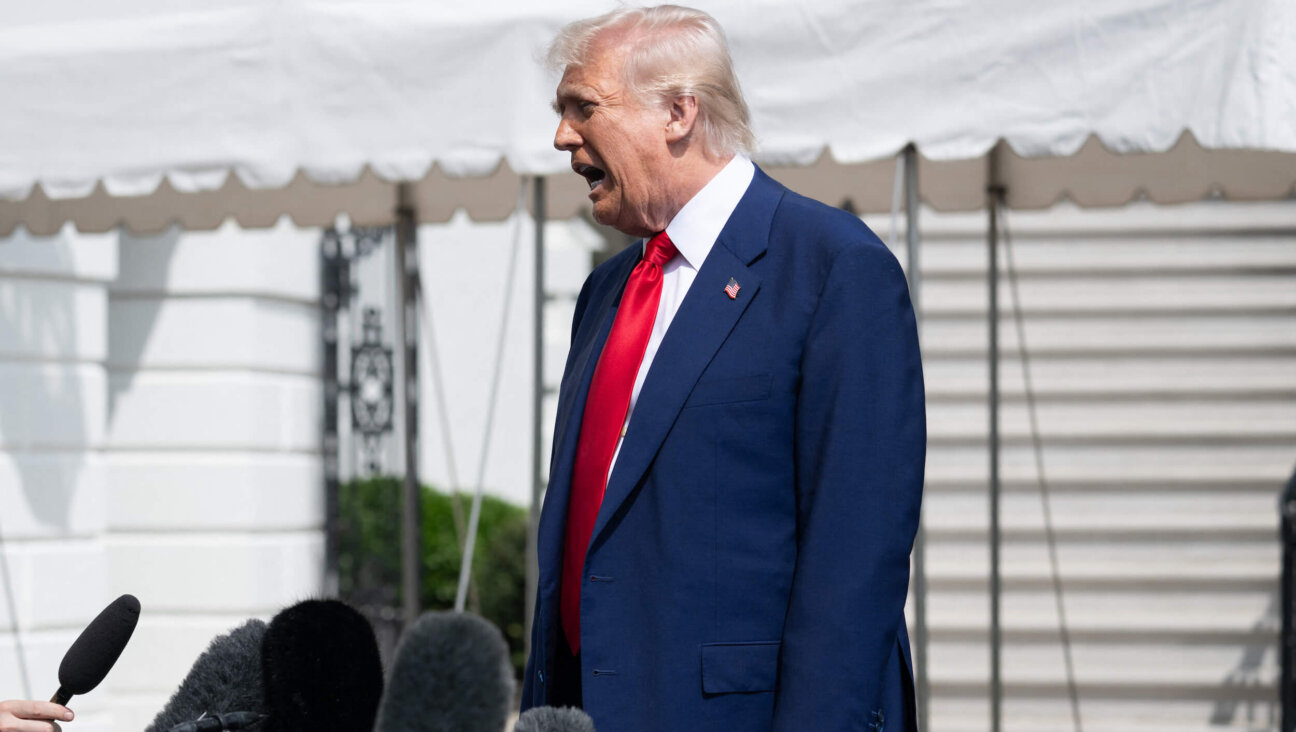
Opinion Trump’s Israel tariffs are a BDS dream come true — can Netanyahu make him rethink them?
- 3
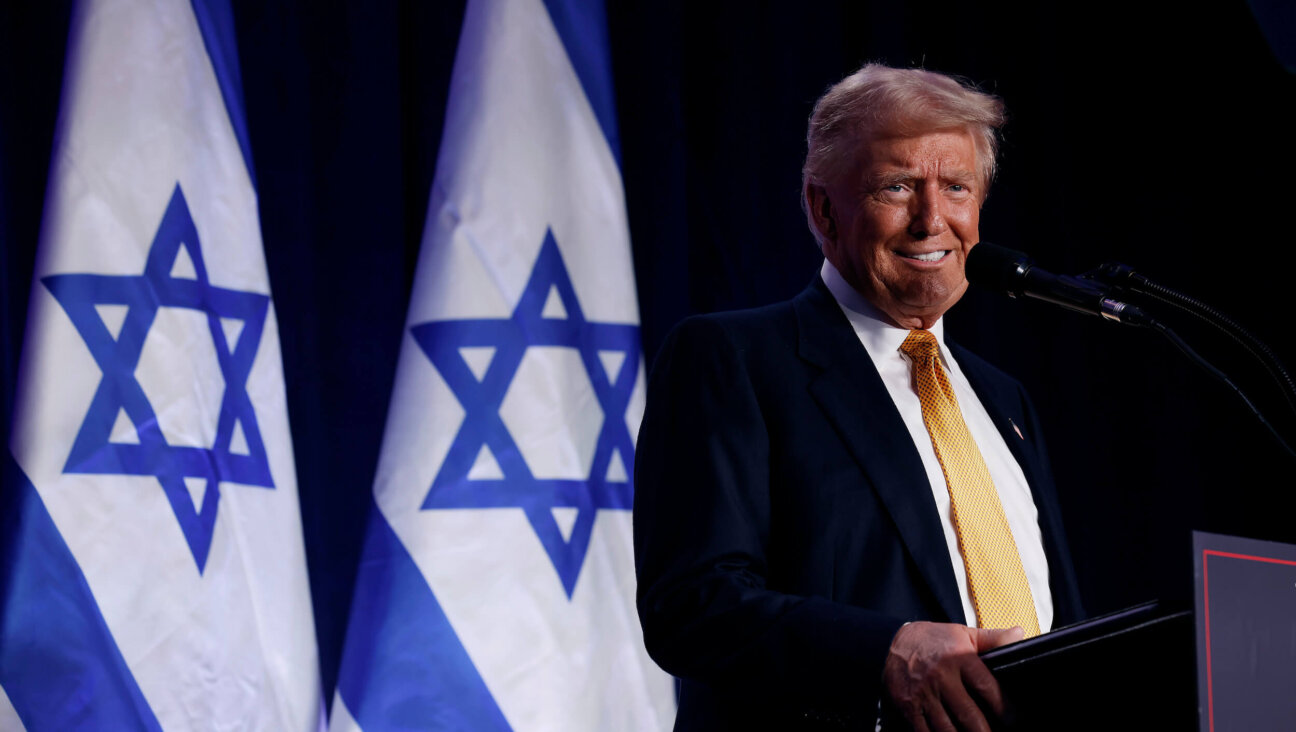
Opinion I co-wrote Biden’s antisemitism strategy. Trump is making the threat worse
- 4

Film & TV How Marlene Dietrich saved me — or maybe my twin sister — and helped inspire me to become a lifelong activist
In Case You Missed It
-
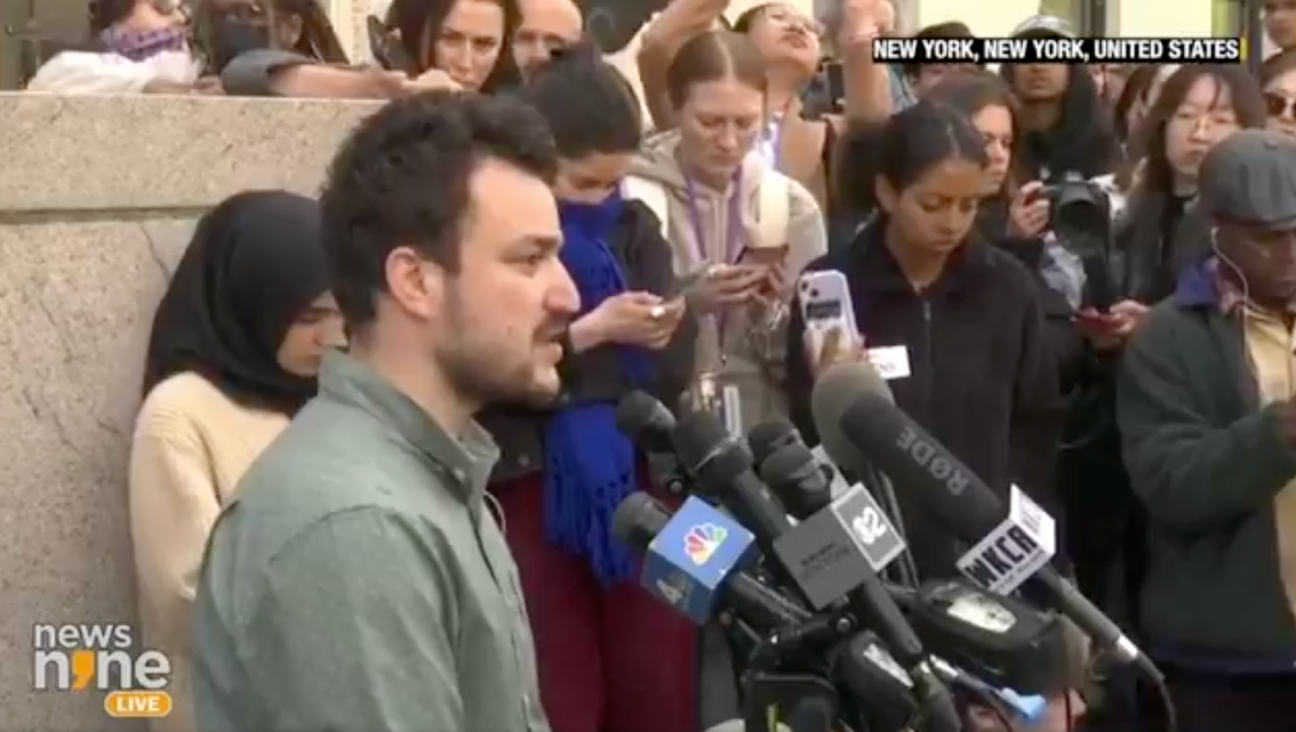
Fast Forward Trump administration can deport Mahmoud Khalil for undermining U.S. foreign policy on antisemitism, judge rules
-
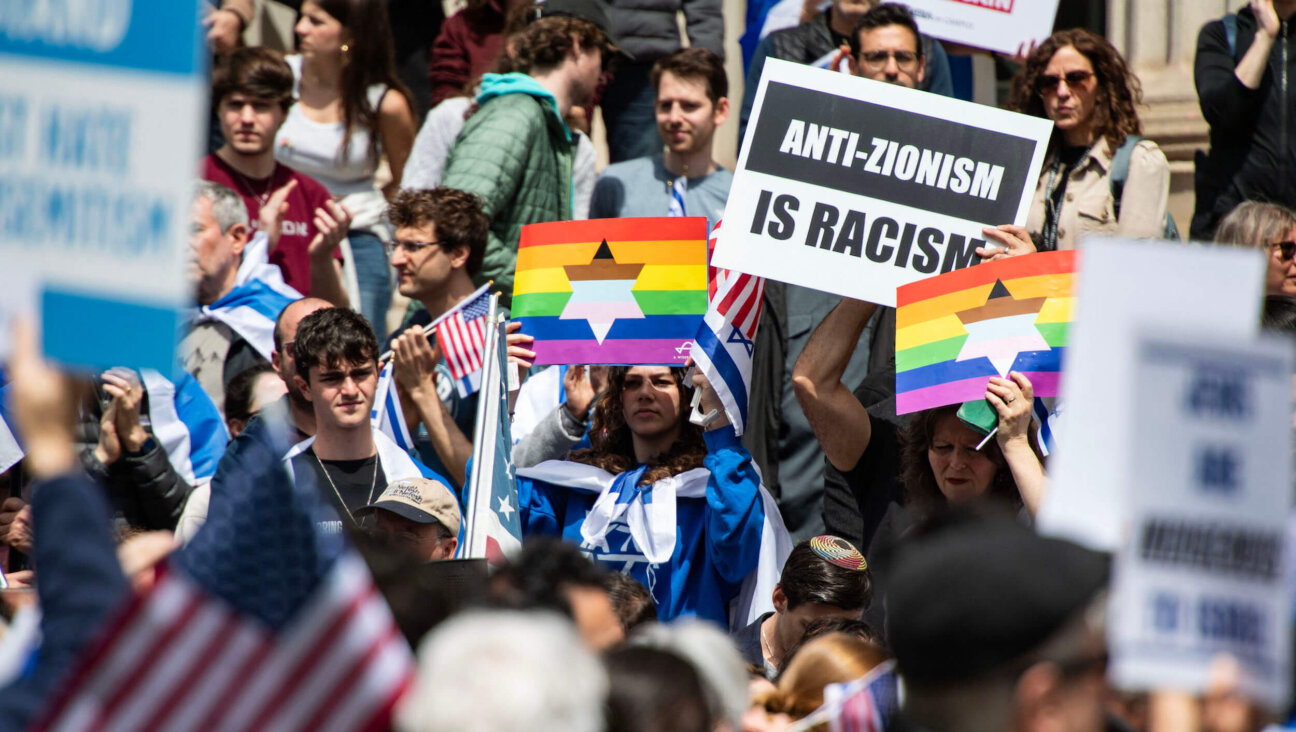
Opinion This Passover, let’s retire the word ‘Zionist’ once and for all
-
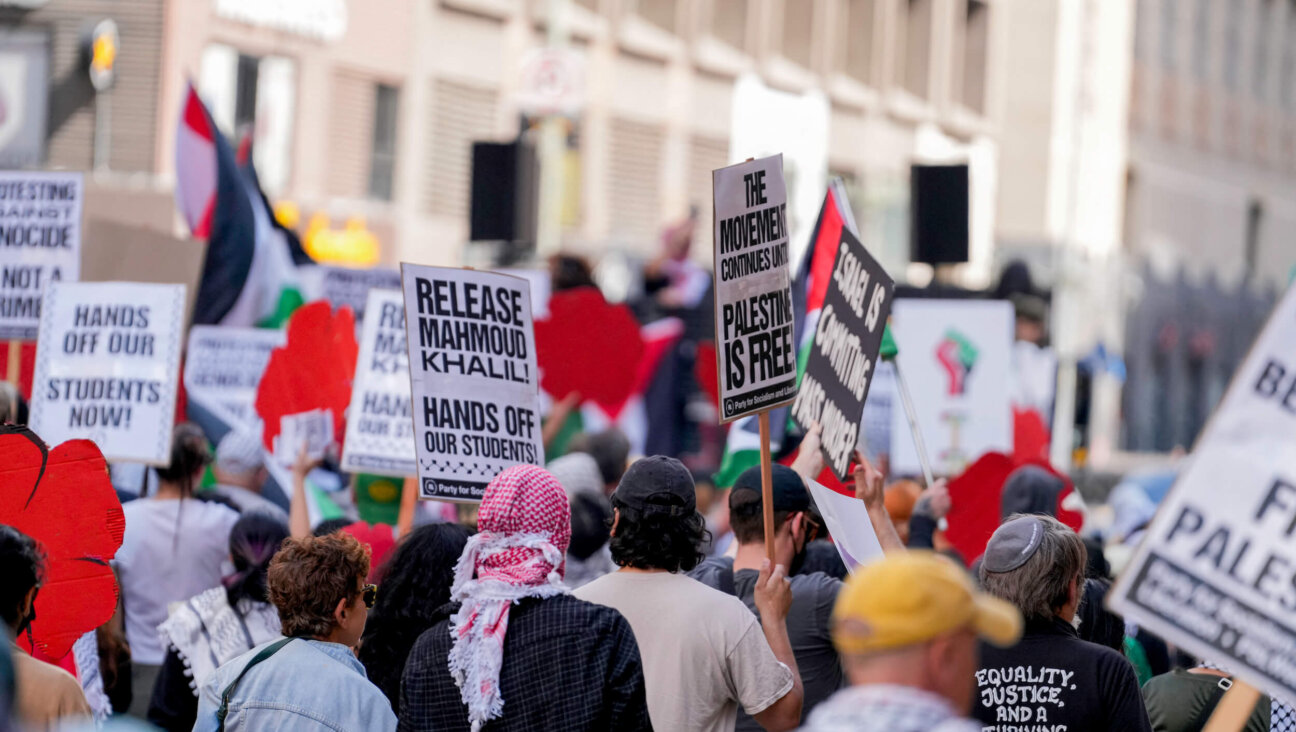
Opinion Passover teaches us why Jews should stand with Mahmoud Khalil
-

Culture At a seder by and for trans Jews, guests define liberation for themselves
-
Shop the Forward Store
100% of profits support our journalism
Republish This Story
Please read before republishing
We’re happy to make this story available to republish for free, unless it originated with JTA, Haaretz or another publication (as indicated on the article) and as long as you follow our guidelines.
You must comply with the following:
- Credit the Forward
- Retain our pixel
- Preserve our canonical link in Google search
- Add a noindex tag in Google search
See our full guidelines for more information, and this guide for detail about canonical URLs.
To republish, copy the HTML by clicking on the yellow button to the right; it includes our tracking pixel, all paragraph styles and hyperlinks, the author byline and credit to the Forward. It does not include images; to avoid copyright violations, you must add them manually, following our guidelines. Please email us at [email protected], subject line “republish,” with any questions or to let us know what stories you’re picking up.








